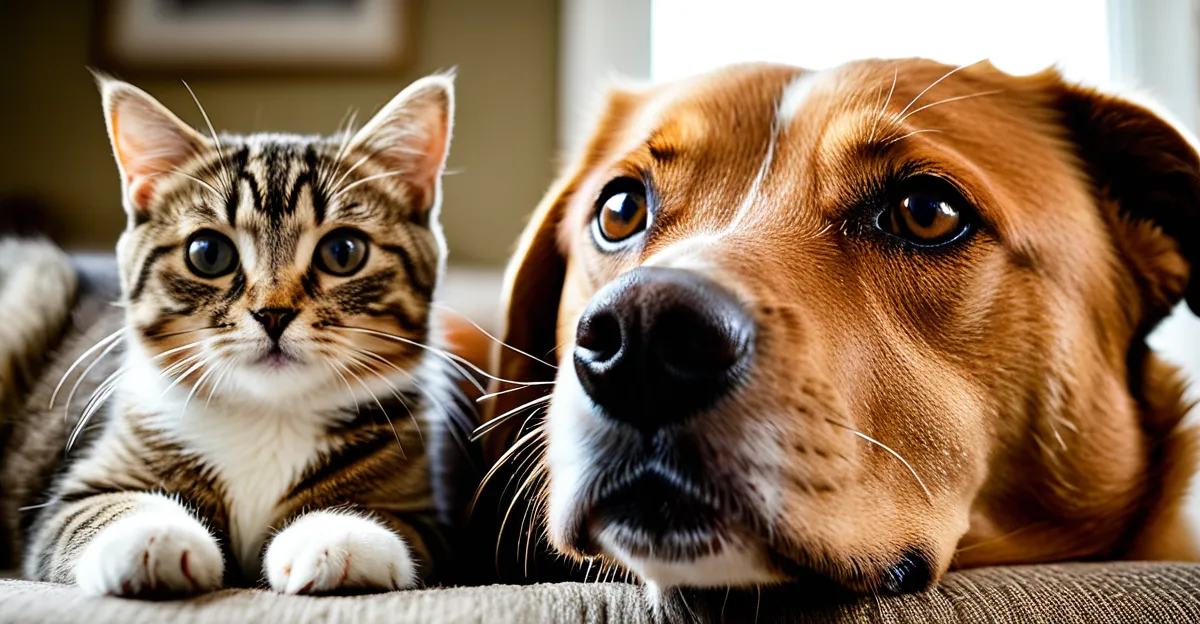How Did Pets Become Household Companions in the UK?
The transformation of animals from working companions or mere pets to beloved household members is a fascinating story that spans centuries. In the UK, this evolution is deeply rooted in social, economic, and cultural changes that have shaped the way people interact with animals.
Early History of Pet Keeping
To understand how pets became integral to UK households, we need to delve into the early history of pet keeping.
Additional reading : How Can You Enhance Your Pet’s Staycation Experience in the UK?
Medieval and Renaissance Periods
During the Middle Ages and the Renaissance, pets were primarily the domain of the wealthy. Dogs, in particular, were kept for hunting and protection, while cats were valued for their ability to control rodent populations. These animals were not necessarily kept as companions but rather for their utility.
18th and 19th Centuries
The Industrial Revolution marked a significant turning point. As people moved from rural areas to cities, their lifestyles changed dramatically. With more disposable income and a growing middle class, people began to keep animals as pets rather than just for work. This period saw the rise of dog breeding and the establishment of the first kennel clubs, which further solidified the status of dogs as companions.
Also to discover : How Can You Prepare Your Pet for Travel in the UK?
Social and Economic Factors
Several social and economic factors contributed to the widespread adoption of pets as household companions.
Urbanization and Changing Lifestyles
Urbanization led to smaller living spaces, but it also meant that people had more leisure time and resources to devote to pets. As cities grew, so did the demand for pets that could thrive in urban environments. Cats, with their low-maintenance care, became particularly popular in urban households.
Rise of the Middle Class
The growth of the middle class in the UK was crucial. With increased financial stability, people could afford to keep pets that were not necessarily useful for work but provided companionship. This shift was also influenced by the Victorian era’s emphasis on family and domestic life, where pets became an integral part of the family unit.
Human-Animal Relationships
The deepening of human-animal relationships is a key aspect of how pets became household companions.
Emotional Bonds
Studies in animal studies have shown that the emotional bonds between humans and animals are profound. Pets provide companionship, reduce stress, and improve mental health. For example, a study by the Mental Health Foundation found that 90% of pet owners reported that their pets helped them cope with stress and anxiety.
Children and Pets
Children play a significant role in the dynamics of pet ownership. Growing up with pets can teach children important life skills such as responsibility, empathy, and compassion. A survey by the Pet Food Manufacturers’ Association (PFMA) revealed that 71% of children in the UK have a pet, highlighting the importance of pets in family life.
Health Benefits of Pet Ownership
The health benefits of pet ownership are well-documented and have contributed significantly to the popularity of keeping pets.
Physical Health
Pets, especially dogs, encourage physical activity. Dog owners are more likely to engage in regular exercise, such as walking or running with their dogs. This can lead to improved cardiovascular health, reduced obesity, and other physical health benefits.
Mental Health
The mental health benefits of pet ownership are equally significant. Pets provide emotional support, reduce feelings of loneliness, and can even help alleviate symptoms of depression and anxiety. For instance, therapy dogs are increasingly used in mental health settings to provide comfort and support to patients.
Animal Welfare and Modern Pet Keeping
As pets have become more integrated into family life, there has been a growing focus on animal welfare.
Animal Welfare Laws
The UK has implemented several laws to protect animal welfare, including the Animal Welfare Act 2006. This act sets out the welfare needs of animals and makes it an offense to cause unnecessary suffering to animals. Such legislation reflects a societal shift towards treating pets as valued members of the family rather than mere possessions.
Responsible Pet Ownership
Modern pet keeping emphasizes responsible ownership. This includes providing proper care, nutrition, and veterinary attention. Organizations like the RSPCA and the Blue Cross offer guidance and resources to help owners ensure the best possible life for their pets.
Practical Insights and Advice
For those considering bringing a pet into their household, here are some practical insights and advice:
Choosing the Right Pet
- Dogs: Require regular exercise and training. Suitable for families with children and those who enjoy outdoor activities.
- Cats: More independent, requiring less maintenance. Ideal for busy households or those living in small spaces.
- Other Pets: Consider smaller animals like rabbits, guinea pigs, or birds for a lower-maintenance option.
Preparing Your Home
- Ensure your home is pet-proofed by removing hazardous items and securing toxic substances.
- Set up a comfortable and safe space for your pet, including bedding, food, and water bowls.
Budgeting for Pets
- Plan for regular expenses such as food, veterinary care, and supplies.
- Consider pet insurance to cover unexpected medical costs.
Detailed Bullet Point List: Benefits of Pet Ownership
- Companionship: Pets provide companionship and social support, reducing feelings of loneliness.
- Physical Health: Encourages physical activity, such as walking or running with dogs.
- Mental Health: Reduces stress, anxiety, and symptoms of depression.
- Responsibility: Teaches children important life skills such as responsibility and empathy.
- Social Benefits: Pets can help their owners meet new people, especially through dog parks or pet-friendly social events.
- Protection: Some pets, like dogs, can serve as a deterrent to potential intruders.
- Therapeutic Benefits: Trained therapy animals can provide comfort and support in various settings.
Comprehensive Table: Comparison of Popular Pets in UK Households
| Pet | Maintenance Level | Exercise Needs | Cost | Suitability for Families | Health Benefits |
|---|---|---|---|---|---|
| Dog | High | High | Moderate to High | Very Suitable | Physical and Mental |
| Cat | Low to Moderate | Low | Low to Moderate | Suitable | Mental |
| Rabbit | Moderate | Moderate | Low to Moderate | Suitable | Physical and Mental |
| Bird | Low to Moderate | Low | Low | Less Suitable | Mental |
Quotes from Experts and Owners
- “Pets are not just animals; they are members of our families. They provide us with companionship, love, and a sense of belonging,” – Dr. Jane Smith, Animal Behaviorist.
- “Having a dog has completely changed my life. It’s encouraged me to be more active and has given me a new sense of purpose,” – John Doe, Dog Owner.
- “Cats are so low-maintenance but still offer so much companionship. They’re perfect for busy households,” – Sarah Johnson, Cat Owner.
In conclusion, the journey of pets becoming household companions in the UK is a rich and complex one, influenced by historical, social, and economic factors. As we continue to evolve in our relationships with animals, it’s clear that pets will remain an integral part of many UK households, providing companionship, health benefits, and joy to countless families.






